SeaCURE BWTS Completes USCG Type Approval Tests
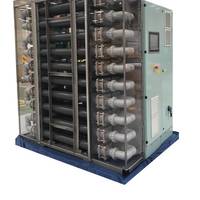
SeaCURE Ballast Water Management System (BWMS), the electrochlorination based solution from Evoqua Water Technologies, has completed all biological efficacy U.S. Coast Guard Type-Approval tests. Tests were carried out under the supervision of classification society Lloyd’s Register and the independent laboratory NSF International will now compile test data for submission to the USCG for imminent approval. Matt Granitto, Business Manager, Ballast Water, said, “We are delighted…
NSF Certification for PPG's Products, Coating Systems
PPG Industries’ protective and marine coatings (PMC) business announced that four individual coatings and primers and two combined coating-and-primer systems have been certified by NSF International for water-tank applications. AMERCOAT 133/844 pit-filler is a hand-applied coating designed to fill deep holes in pitted steel surfaces with a single pass. It features a 100-percent solids formulation and emits almost zero volatile organic compounds (VOCs), and it trowels easily to a smooth finish. SIGMAWELD 199 primer is a weldable preconstruction primer that provides up to 12 months of corrosion protection during construction and offers extended recoatability thereafter.
VOS BWTS to Be Tested on APL Containership
Shipboard testing to be conducted on the vessel APL England as NEI takes the next step towards full USCG Type Approval for its Venturi Oxygen Stripping (VOS) Ballast Water Treatment System. NEI Treatment Systems announced that the container vessel APL England will be used for the shipboard testing phase of their VOS Ballast Water Treatment System (BWTS), to begin in the early summer of 2015. The APL England is a 67.9K DWT container vessel, trading between China and multiple ports on the U.S. West Coast. The vessel utilizes a VOS system operating at 1,250 m3/hr., and was installed seven years ago. The retrofit project was completed as an in-service “riding” installation.
US, German Agencies Partner for BWMS System Testing
New cooperation provides manufacturers of ballast water management systems (BWMS) with an opportunity to obtain German and U.S. NSF International, the first Independent Laboratory (IL) designated by the United States Coast Guard (USCG) to evaluate and test ballast water management systems (BWMS) for U.S. type approval, can now provide BWMS testing to Germany’s Federal Maritime and Hydrographic Agency (Bundesamt für Seeschifffahrt und Hydrographie (BSH)) requirements, which are based on International Maritime Organization (IMO) Guidelines. BWMS manufacturers may now submit for required type approvals to NSF International IL and in parallel to BSH using the same set of test data. This will reduce test costs and approval time and allow ships to navigate to U.S.
Insights: Rear Admiral Paul F. Thomas
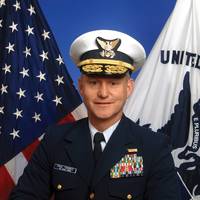
Rear Admiral Paul Thomas is the Assistant Commandant for Prevention Policy overseeing three Coast Guard directorates: Inspections and Compliance, Marine Transportation Systems, and Commercial Regulations and Standards. The programs include waterways management, navigation and boating safety, ports and facilities, merchant mariner credentialing, vessel documentation, marine casualty investigation, commercial vessel inspections, and port state control. A longtime specialist in Marine Safety…
The Ballast Water Management Conundrum
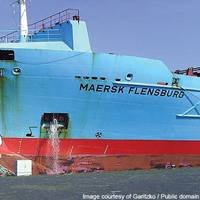
U.S. Ten years on, there’s little certain about ballast water management regulations that the industry can chart a course around other than that it will be expensive – possibly the most costly marine retrofit to date. With install estimates running from $500,000 to as much as $5 million per vessel, across some 68,000 commercial ships estimated by the IMO to transfer 7 billion tons of ballast water annually – industry players say we could be looking at as much as an $80 billion market. Eventually, that is, because there is not a lot of activity right now.
NSF Expands Independent Lab for USCG
The NSF International Independent Laboratory (IL), the first designated by the United States Coast Guard (USCG) to test ballast water management systems (BWMS) for U.S. type approval, will now include the American Bureau of Shipping’s (ABS) expertise. ABS will complete design/construction and documentation reviews as part of the type approval, and will work with three other IL partners to maximize the value of USCG type approval testing for BWMS manufacturers. ABS will also evaluate the appropriateness of the systems for installation and operation onboard vessels. NSF’s IL partnership, formed in 2012, includes Retlif Testing Laboratories, the Great Ships Initiative, the Maritime Environmental Resource Center and now ABS.
Retlif Testing Laboratories Marks 35 Years
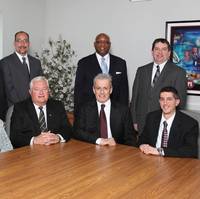
Retlif Testing Laboratories, a strategic compliance organization and a leading independent testing laboratories, is celebrating its 35th year of operations. President Walter Poggi officially announced the anniversary with a series of planned events and pledged to uphold the personal service that has been the organization’s hallmark since its inception. Founded in 1978 by Walter and Marilyn Poggi, Retlif provides EMC/EMI and environmental simulation testing services, approvals and certifications in support of clients in the marine and maritime fields.
Retlif Marks 35th Anniversary
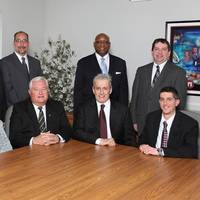
Retlif Testing Laboratories, a strategic compliance organization and independent testing laboratory, is celebrating its 35th year of operations. President Walter Poggi officially announced the anniversary with a series of planned events and pledged to uphold the personal service that has been the organization’s hallmark since its inception. Founded in 1978 by Walter and Marilyn Poggi, Retlif provides EMC/EMI and environmental simulation testing services, approvals and certifications in support of clients in the marine and maritime fields.
Retlif To Help Test Ballast Water Technology

Retlif Testing Laboratories is part of a partnership to evaluate and test technologies designed to treat ballast water on board ships against non-native aquatic species in American coastal waters, lakes and rivers. The U.S. Coast Guard developed regulations to limit the release of live organisms and to reduce the risks associated with the spread of aquatic invasive species. Ballast water management system manufacturers (BWMS) will apply to NSF International and the U.S. Coast Guard for testing, review and evaluations.
Ballast Water Treatment Systems Lab USCG Recognized
NSF International gains United States Coast Guard acceptance as Independent laboratory for ballast water management system testing. NSF International (NSF), an independent public health organization, has become the first Independent Laboratory (IL) accepted by the United States Coast Guard (USCG) to evaluate and test technologies designed to treat ballast water on ships in order to prevent the spread of non-native aquatic species in lakes, rivers and coastal waters. NSF is leading a partnership between Retlif Testing Laboratories (Retlif), the Great Ships Initiative (GSI) and the Maritime Environmental Resource Center (MERC) to test and evaluate systems to the Coast Guard requirements.
MERC BWT Testing Facility is U.S. Coast Guard Approved
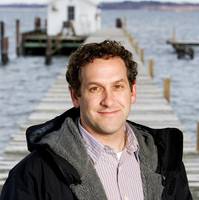
Ballast water treatment system testing facility earns U.S. Coast Guard approval. The University of Maryland Center for Environmental Science's Maritime Environmental Resource Center (MERC) has partnered with NSF International, Great Ships Initiative and Retlif Testing Laboratories to become the first U.S. Coast Guard-approved Independent Laboratory for evaluation and testing of technologies designed for treatment of ballast water on ships. Ballast water carries non-native species from around the world can pose economic, ecological and public health risks. U.S.









